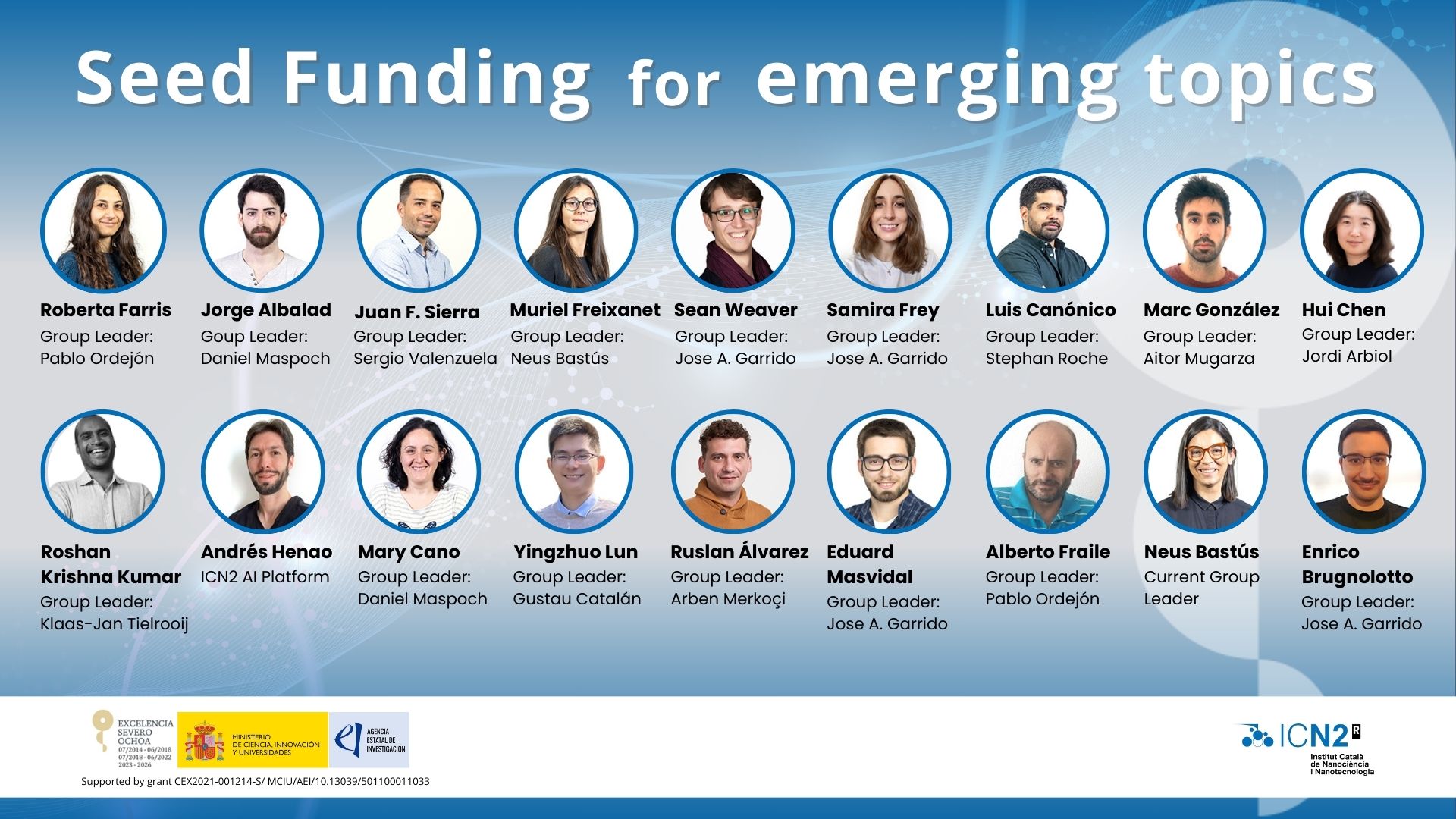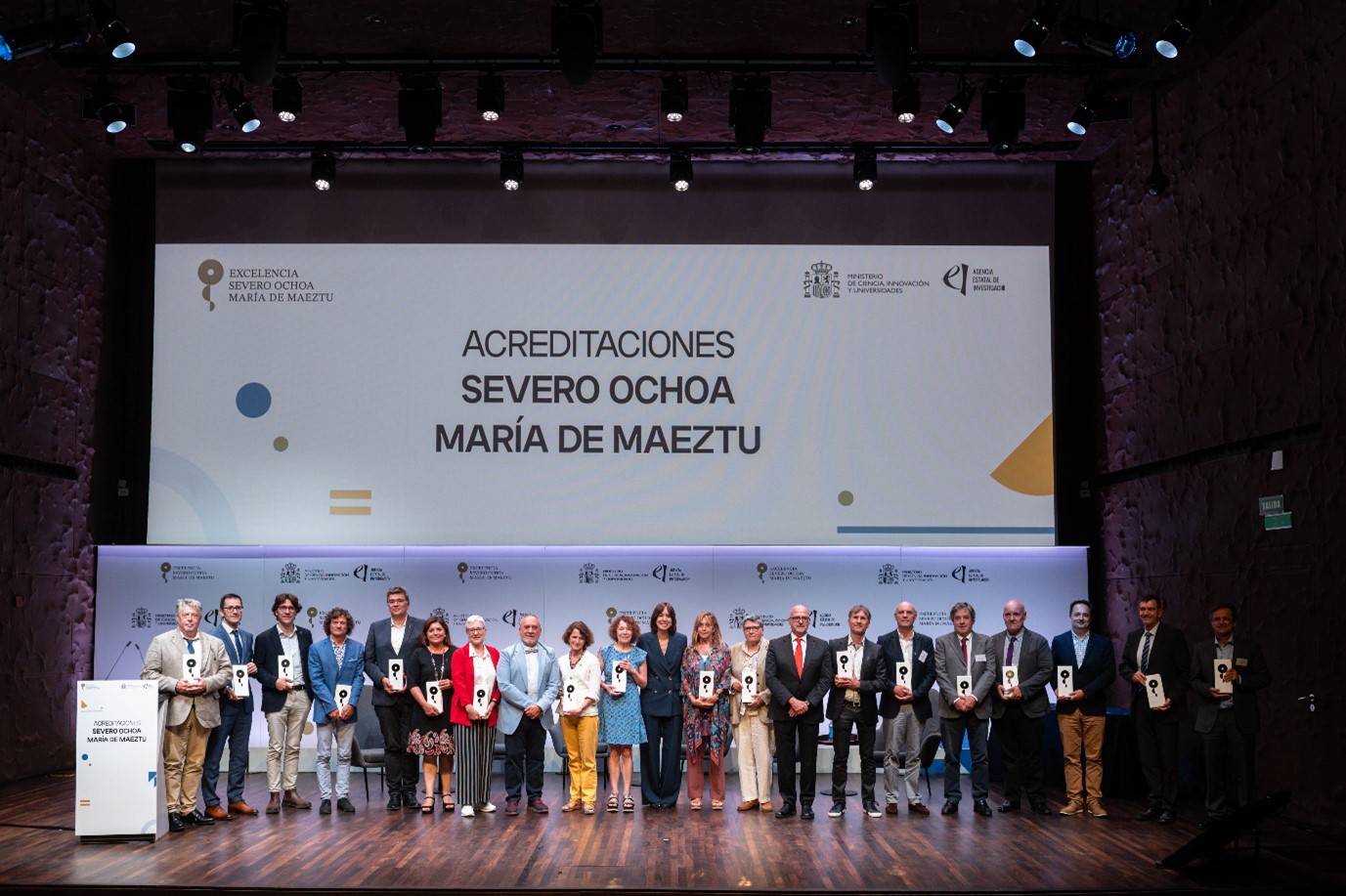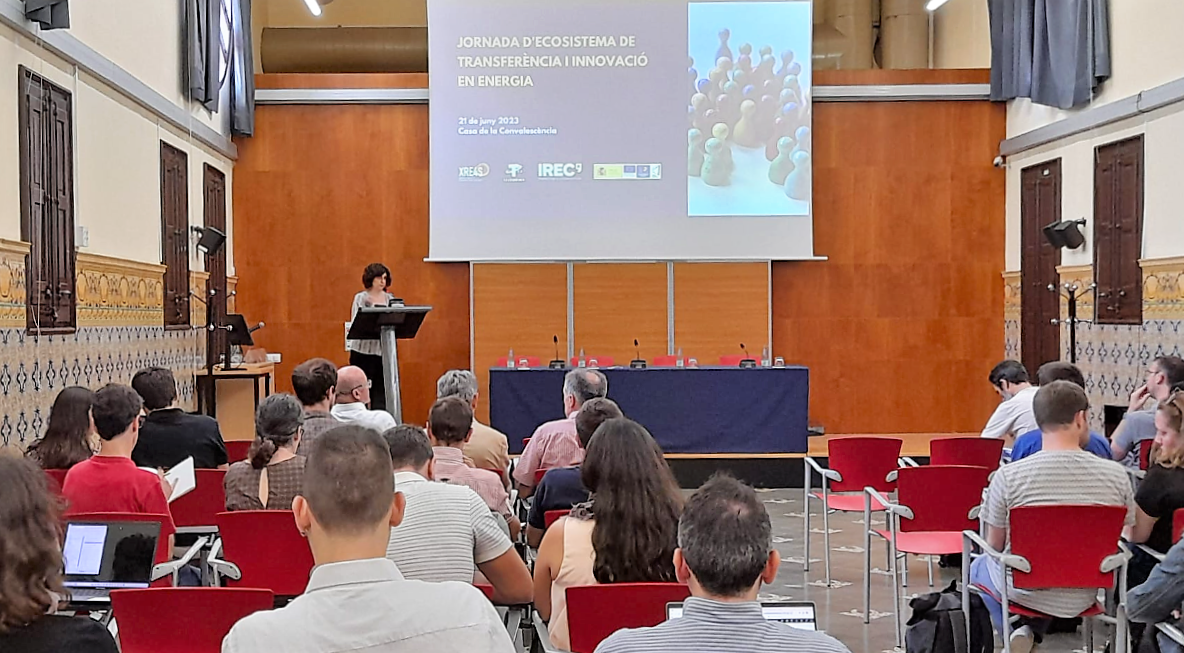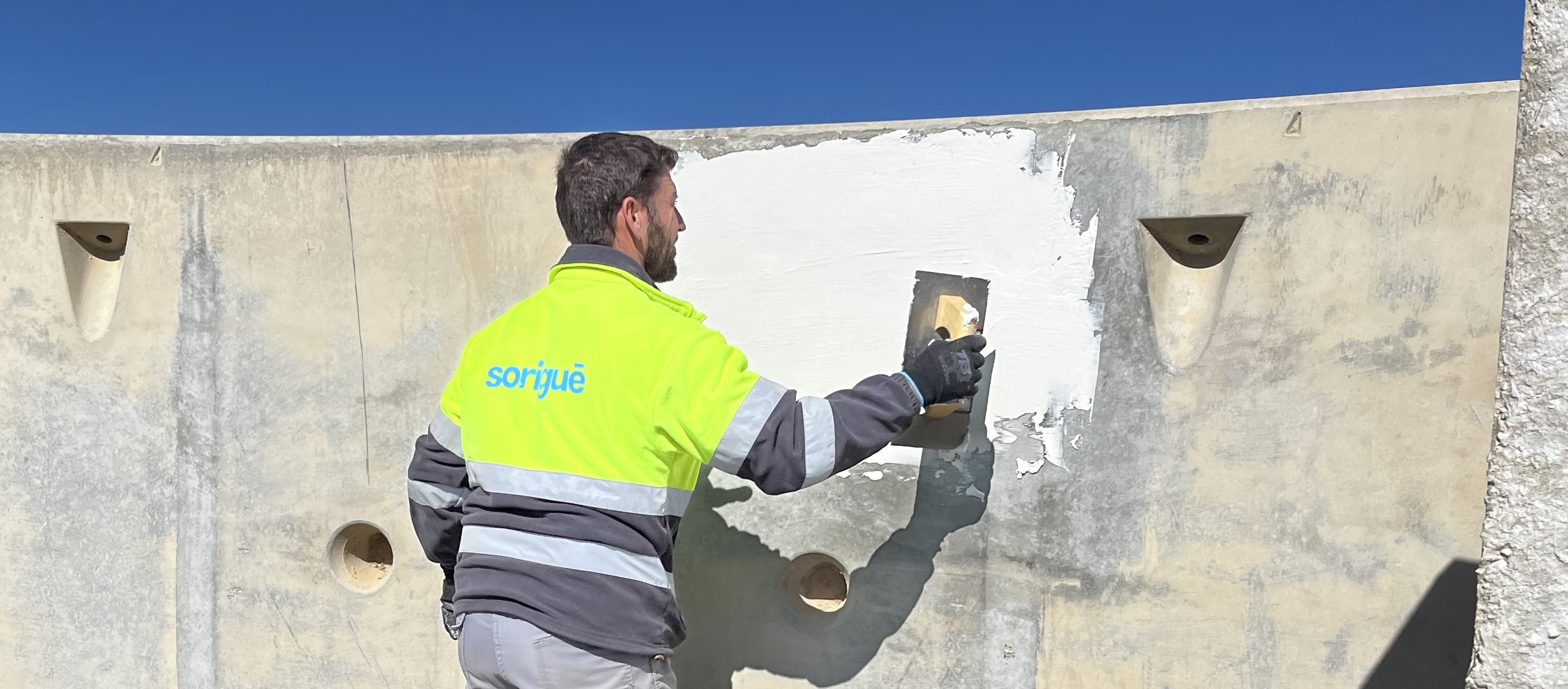Wednesday, 30 April 2025
Nine ICN2 Projects Selected for Severo Ochoa Seed Funding in 2025
These awarded projects have a clear and emerging research perspective and are expected to significantly impact society in the future.


Wednesday, 30 April 2025
These awarded projects have a clear and emerging research perspective and are expected to significantly impact society in the future.

Friday, 06 September 2024
The event, which was presided over by Diana Morant, Minister of Science, Innovation, and Universities, honoured the most distinguished scientific centres and units in Spain.

Thursday, 23 May 2024
The 12-month projects, characterised by a clear and emerging research direction, are expected to impact future society significantly.

Wednesday, 29 November 2023
A selection of research and review papers have been collected in this special issue to provide an overview of some of the most recent and interesting developments in the field of biosensing, with a particular emphasis on the advantages provided by new materials and nanotechnology.

Tuesday, 24 October 2023
On the International Day of Climate Action, ICN2 unveils a new Media Spotlights section on its website and celebrates the relentless pursuits in nanotechnology-driven sustainable innovation by its researchers and collaborative initiatives.

Thursday, 13 July 2023
A team of scientists from various Spanish research centres synthesized a new reticular material that can be used to detoxify hazardous chemicals, thanks to its ability to act as a reaction catalyst. This very porous and robust material, named BCN-348, has a peculiar structure, typical of a class of materials called ‘metal-organic frameworks’ (or MOFs). This research has been recently published in ‘Chemical Communication’ and was coordinated by ICREA Prof. Daniel Maspoch, group leader at the ICN2.

Thursday, 06 July 2023
This Award was conferred to Prof. Escudero Escribano in recognition of her outstanding contribution to materials chemistry.

Friday, 23 June 2023
Three researchers from the ICN2 presented their projects in this meeting dedicated to industrial research and technology transfer in the field of green energy and sustainability.

Thursday, 02 March 2023
ICN2 is collaborating with the companies Sorigué and Cales de Pachs to develop a material, to be adhered to different surfaces, that can capture CO2. The tests of this technology, developed and patented at the ICN2 in the framework of the LightNET project, are being carried out at Sorigué's La plana del Corb industrial complex.

Friday, 24 February 2023
A study published in ACS sensor and led by members of the ICN2 Nanobioelectronics and Biosensors Group introduces a one-step, versatile technique to produce nanocomposite films (made of reduced graphene oxide embedding metal nanoparticles) to be used as sensing substrates for different applications. The simplicity of this approach can allow scaling sensor production and reducing costs.

Thursday, 16 February 2023
As discussed in a paper published in the ‘Elsevier Reference Module in Chemistry, Molecular Sciences and Chemical Engineering’, the peculiar properties of nanomaterials and their behaviour at the interface with water can strongly enhance decontamination and remediation techniques. The most relevant contributions in this field, as well as the connected challenges, are presented in this work, which have many researchers from the ICN2 among its authors.

Wednesday, 11 January 2023
The R+D+I Energy for Society Network (XRE4S) provides consultancy and mentoring in industrial strategy, property protection, and market positioning to researchers who are interested in transferring their technologies to an existing company or founding a new one. Five spin-offs have been recently created with the support of XRE4S and one more (from the ICN2) may be established soon.

Thursday, 15 December 2022
The SMART-ER project has been granted funding by the Spanish Research Agency to produce photoresponsive materials based on a conceptually new paradigm. It will be led by the ICN2 Nanostructured Functional Materials Group (Nanosfun).

Monday, 05 December 2022
'Científicas e Innovadoras' is a display and search engine for excellent female talent in Spain.

Wednesday, 16 November 2022
Thanks to this funding, researchers at the ICN2 will develop photo-sensitive materials for smart windows, membranes for skin regeneration and a device for rapid detection and discrimination of respiratory viruses.

Monday, 17 October 2022
In a paper published in ‘JACS’, an alternative method to synthesize complex metal-organic framework (MOFs), by assembling prefabricated “pores”, is proposed. The approach envisioned by a team of researchers from the ICN2 Supramolecular NanoChemistry and Materials Group provides greater control over the materials produced and their specific properties.

Tuesday, 27 September 2022
Dr Amador Pérez-Tomas, senior postdoctoral researcher at the ICN2, presented LighNET in an online event organised by XRE4S, XIA and BlueNetCat.

Tuesday, 27 September 2022
Two studies led by members of the ICN2 Novel Energy-Oriented Materials Group, recently published in specialised journals, explore two parallel strategies for the development of a hybrid material –based on MXene and polyoxometalates— for the electrodes of supercapacitors, which results in improved energy storage performance.

Thursday, 22 September 2022
The Barcelona Deep Tech Summit (September 22) unfolds a dense programme of roundtables, discussions, and pitches for investors.

Thursday, 15 September 2022
The new open access journal 'APL Energy' is now open for submissions and will start publishing in 2023.
